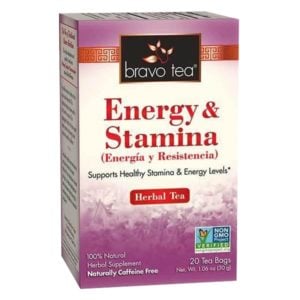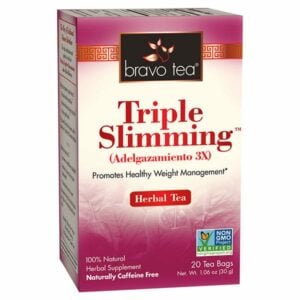Your cart is currently empty!
Green tea is one of the most popular superfoods in the world – and for good reason! From boosting your energy to fighting chronic disease, the benefits of Chinese green tea are endless. Read on to learn more about how the power of Chinese green tea can help you live your healthiest life.
All About Green Tea
Green tea (also known as lu cha, or Folium Camellia Sinensis) is a popular health beverage made from steeping green tea leaves. It is one of the six types of tea that is made from the leaves of the camellia plant: white tea, yellow tea, green tea, oolong, black tea, and pu erh tea.
Authentic Chinese green tea has a verdant, nutty flavor. Unlike black tea, green tea has not been oxidized, which is why it often tastes fragrant and looks lighter in color when steeped.
Like coffee, green tea contains caffeine to stimulate your brain and help you feel awake. But green tea contains far less caffeine than coffee, giving you just enough energy without the jitters or anxiety. Green tea also contains an amino acid called l-theanine that sharpens your thinking and focus. L-theanine also slows down the absorption of caffeine, giving you a longer-lasting boost of energy.
While green tea has become popular in our modern times for its many health benefits, green tea in Chinese history is as old as Traditional Chinese medicine itself. It has been a prized as both a delicious beverage and healing tonic in China for thousands of years – potentially dating back as early as 2737 BC!
Types of Chinese Green Tea
All green teas are the same, right? Not exactly! Green tea comes in a variety of types, each with its own unique flavors and benefits. There are two main types of Chinese tea:
- Longjing
Longjing, or “Dragonwell” tea is the most popular and sought out variety of Chinese green tea. It has a beautiful jade green color and a nutty or grassy flavor.
- Gunpowder
Gunpowder green tea is easy to spot – it is often shaped into small pellets that look like gunpowder grains. Gunpowder tea has a slightly metallic taste and a higher caffeine content.
Along with these Chinese green teas, there are also several varieties of Japanese green teas:
- Sencha
Sencha is the most popular Japanese green tea, with several different subtypes. Most have a fruity, nutty flavor.
- Matcha
Matcha is a unique type of tea that is made by grinding green tea leaves into a fine powder. The result is a bright green tea that can be used for tea ceremonies, matcha lattes, and even in baked goods or cooking.
- Genmaicha
Genmaicha tea blends green tea leaves with roasted rice kernels for a roasted, hearty flavored tea. It is a popular tea for those looking to cut down or replace their coffee consumption with a healthier pick-me-up.
Chinese Green Tea Benefits
The health benefits of green tea range from a temporary mid-day mental boost to improved metabolism to long-term protection against chronic disease. Here are just a few key reasons you should consider drinking Chinese green tea:
- Green tea contains health-promoting antioxidants.
Green tea is one of the best sources of antioxidants, substances that reduce cellular damage and protect the body against inflammation and diseases like cancer. Green tea has also been shown to improve overall immune health and heal inflammatory skin conditions.
- Green tea improves energy and focus.
Need a brain boost? Green tea contains both caffeine and l-theanine – two compounds that stimulate the brain, improve focus, enhance memory, and even boost your mood. Green tea may also help reduce anxiety by increasing the amount of feel-good neurotransmitters like GABA and dopamine.
- Green tea supports weight loss.
Green tea is a well-known weight loss aid, and many weight loss teas and supplements use extracts from green tea to enhance their benefits. Why? Green tea compounds such as EGCG increase fat burning and boosts metabolism. Studies show that those who drink green tea daily are likely to burn more calories, burn more fat, and reach their weight loss goals.
- Green tea may reduce pain and arthritis.
Because of green tea’s high levels of antioxidants, it may help support pain conditions with inflammation at the root. Researchers have found that green tea can be particularly helpful for reducing inflammation and pain in rheumatoid arthritis and osteoarthritis.
How Often Should I Drink Green Tea?
Drinking green tea daily is a simple way to support your health goals. Most experts recommend drinking 3-5 cups per day to make the most of green tea’s health benefits. But, everything in moderation! Drinking more than 6 cups could increase the likelihood of negative side effects like headaches or stomach upset.
It is usually recommended to drink green tea in the morning or early afternoon to get the best energy-boosting benefits from green tea’s caffeine and l-theanine. Drinking it too late can cause difficulty sleeping.
Green Tea Side Effects
Green tea is typically a safe beverage to enjoy in moderation. But in some cases, green tea can cause unwanted side effects. The most common side effects of green tea are:
- Stomach upset
The high tannin content of green tea can increase acid in the stomach and lead to nausea, cramps, or acid reflux. Brew your green tea with water between 150 and 180 F and avoid drinking it on an empty stomach to prevent any adverse effects.
- Diarrhea
For some people, the caffeine in green tea can cause a laxative effect. If you suffer from loose stools or IBS, avoid drinking large quantities of green tea.
- Headaches
The caffeine in green tea can trigger headaches or migraines.
- Sleep disturbance
Because green tea is a mild stimulant, drinking too much green tea can leave you lying awake at night. Have your last cup of tea at least five hours before you plan to go to bed to give the caffeine time to wear off.
If you are pregnant or breastfeeding, or are on certain types of medications, green tea may not be recommended. Speak with your healthcare provider to find out if green tea is a safe choice for you.
The Best Chinese Green Teas
At Best Chinese Medicines, we know the power of green tea. That’s why we carry some of the best Chinese herbal teas. These are some of our best-selling Chinese green tea and herbal blends:
Best Chinese Green Tea for Weight Loss:
Dieter’s Slimming Tea
Dieter’s Slimming Tea is the go-to daily tea when you’re working on a weight loss goal. Along with jasmine green tea, this herbal tea blend includes Chinese herbs to support your digestion, boost metabolism, and eliminate excess fat and water weight.
Best Chinese Tea for Energy:
-
 Energy and Stamina Tea – by Bravo Tea
Starting at $6.99
Add to CartSelect options
This product has multiple variants. The options may be chosen on the product page
Energy and Stamina Tea – by Bravo Tea
Starting at $6.99
Add to CartSelect options
This product has multiple variants. The options may be chosen on the product page
Energy & Stamina Tea
Looking for a healthier way to increase your energy and focus any time of day? This herb-infused jasmine green tea helps you stay alert without the jitters or energy crashes.
Best Chinese Green Tea for Wellness:
-
 Triple Immune Support – by Bravo Tea
Starting at $6.99
Add to CartSelect options
This product has multiple variants. The options may be chosen on the product page
Triple Immune Support – by Bravo Tea
Starting at $6.99
Add to CartSelect options
This product has multiple variants. The options may be chosen on the product page
Daily Immunity
You’re only as tough as your immune system. Daily Immunity Tea is one of the best Chinese green teas to enjoy regularly for a wide range of health benefits. This herbal tea blend supports your immune system, repairs cellular damage, reduces inflammation, and promotes overall wellbeing.
Want to learn more about how Chinese herbal teas can help you achieve your wellness goals? Read our complete guide to Chinese herbal teas here, or shop our collection to find the best Chinese green tea for you!
Table of Contents
- All About Green Tea
- Types of Chinese Green Tea
- Chinese Green Tea Benefits
- How Often Should I Drink Green Tea?
- Green Tea Side Effects
- The Best Chinese Green Teas
About the Author
Blog Categories
- Adaptogen Articles (7)
- Brain Health Articles (9)
- Chinese Medicine Basics Articles (10)
- Chinese Medicine for Pain Articles (13)
- Chinese Medicine for Pets Articles (3)
- Chinese Medicine for Skin Conditions Articles (6)
- Chinese Medicine Formula Articles (6)
- Chinese Medicine Sleep Articles (4)
- Conditions & Concerns Articles (17)
- Digestive Issues (5)
- Health & Lifestyle Articles (17)
- Heart Health Articles (4)
- In the News (1)
- Medicinal Mushrooms Articles (7)
- Men's Health Articles (4)
- Scholarships (5)
- Uncategorized Articles (9)
- Weight Loss, Diet & Obesity Articles (5)
- Women's Health Articles (9)
Articles Related To The Power of Chinese Green Tea
-
If you have read our blogs or visited an acupuncturist, you may have heard the term “dampness.” But what is dampness in Chinese Medicine, and what does it mean for your health? Dampness may sound like a strange concept, but it’s pretty simple. Read on to learn what dampness really is and how you can…
-
When you think of China, do images of buzzing cities, the Great Wall, vast rice fields, silk shops, and dumplings fill your mind? These are some of the most common things we associate with China. But what about tea? Tea is one of the most important aspects of Chinese culture, trade, and of course –…
-
Are you wondering which form of a Chinese herbal formula you should choose? Let’s walk through the options. Those who are new to Chinese herbal medicine are often curious about why there are so many different types of herbal preparations. Pills, tablets, tinctures – what’s the difference?! And which one is for me? The short…
-
It’s February and that means Valentine’s Day is on its way! Valentine’s Day is all about love, treats, pampering, chocolates, and flowers of course! Flowers can brighten up any room, but did you know they can work wonders on our health as well? Flowers have long been a part of the Chinese healing tradition and…
-
What do we mean by the Spleen: According to Traditional Chinese Medicine theory, the energetic organ system responsible for what we in modern times call “digestion” is the Spleen. This is not to be confused with the Western medical definition of the spleen as the organ that, among other things, makes antibodies, removes old red…


 Triple Slimming Tea – by Bravo Tea
Triple Slimming Tea – by Bravo Tea